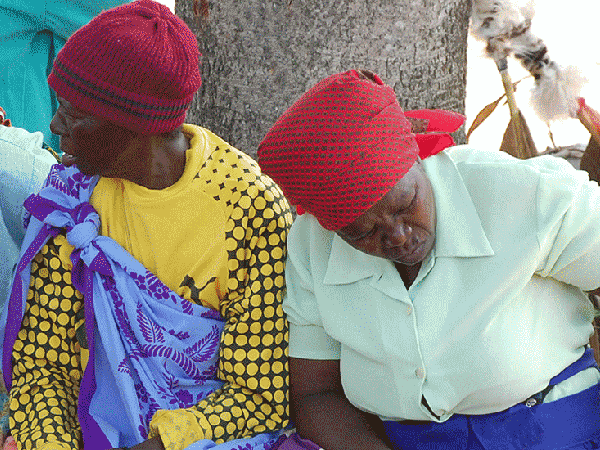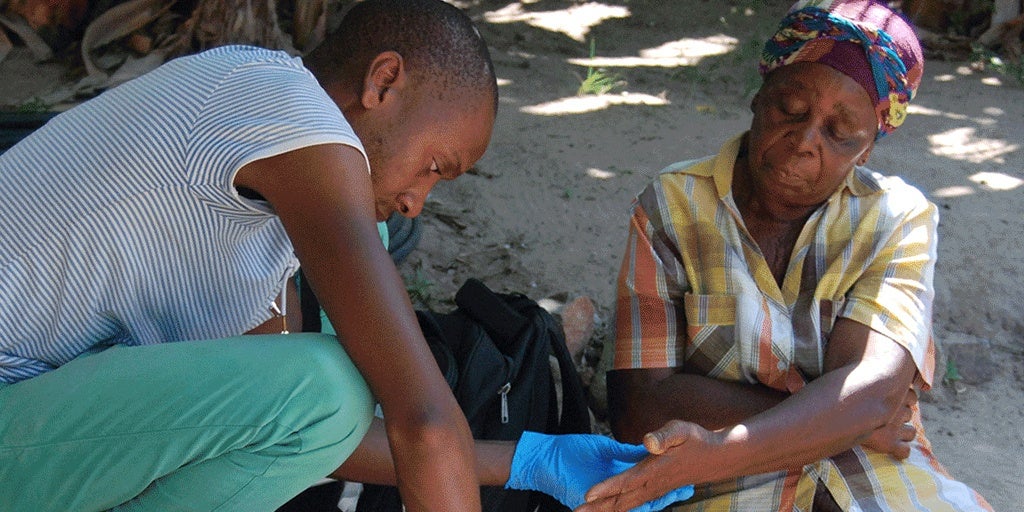While there is much data on the levels of prevalence of HIV among older South Africans, less is known about the risks of older people acquiring HIV. Research from the Health and Aging in Africa: A Longitudinal Study of an INDEPTH Community in South Africa (HAALSI) project published in JAIDS finds that there is some risk of acquiring HIV over the age of 50, especially for women.
HIV treatment programs linked to better cardiometabolic health indicators in South African patients
Researchers in the The Health and Aging in Africa: a longitudinal study of an INDEPTH Community in South Africa (HAALSI) project explored whether those people living with HIV receiving antiretroviral therapy (ART) might have better chronic disease (e.g. hypertension, diabetes) control and numbers resulting from the “cascade” of care. The results are published in JIAS.
In South Africa, when HIV testing is not always possible, is self-reported status a viable, reliable alternative?
A team of researchers affiliated with the Harvard Pop Center and the Health and Aging in Africa: A Longitudinal Study of an INDEPTH Community in South Africa (HAALSI) has found that the self-reported HIV status of older adults was accurate enough that it could be considered as a routine first step to establish HIV status when testing is not possible. The study was published in JIAS (Journal of the International Aids…
Global health researchers call for development of local research capacity within LMICs
A team of global health experts, including Harvard Pop Center faculty members Stephen Tollman and Kathleen Kahn, have authored a Comment in The Lancet Global Health that makes a case for why strengthening local research capacities within low- and middle-income countries (LMICs) is needed to most effectively pinpoint issues, and develop and govern system-wide solutions. The team offers a detailed list of action steps that could be taken to ensure that such a…
How do functional abilities of aging population in South Africa compare to those in other LMICs?
Researchers affiliated with the Harvard Pop Center have authored a paper based on research from the Health and Aging in Africa: a Longitudinal Study of an INDEPTH Community in South Africa (HAALSI) study that finds that older South African men had 30% higher odds than women of being limited when it came to performing activities of daily living (ADLs), and that this cohort in South Africa (men and women) did not…
Receiving antiretroviral therapy for HIV may offer spillover health benefits for at-risk population in South Africa
A team of HAALSI (a research project studying health of aging population in South Africa) researchers affiliated with the Harvard Pop Center has found that HIV-positive adults in South Africa who receive antiretroviral therapy (ART) for HIV have greater access to preventative care for non-communicable diseases (NCDs) such as diabetes and hypertension. Their findings are published in the journal Open Forum Infectious Diseases.
HIV prevention initiatives needed targeting those 40 years & older in rural South Africa
A study published in JAIDS (Journal of Acquired Immune Deficiency Syndromes) by a team of HAALSI (Health and Aging in Africa: A Longitudinal Study of an INDEPTH Community in South Africa) researchers examines whether older adults in rural South Africa have unmet needs for HIV prevention.
Safer sex, better HIV prevention practiced by young South African women with jobs, own money
Harvard Pop Center Bell Fellow F. Xavier Gomez-Olive, PhD, and faculty member Kathleen Kahn, PhD, are among the authors of the study published in AIDS and Behavior.
Frequenting bars associated with increased sexual & HIV risk, & HSV-2 infection among South African young women
Harvard Pop Center Bell Fellow Molly Rosenberg, PhD, and Pop Center faculty member Kathleen Kahn, PhD, are co-authors of a study published in PLoS One that found that for young South African women, there was an association between visiting bars, especially when alcohol was consumed, and having more sexual partners, unprotected sex, transactional sex, and Herpes Simplex Virus Type 2 (HSV-2) infection. The study suggests that sexual health interventions targeted…

